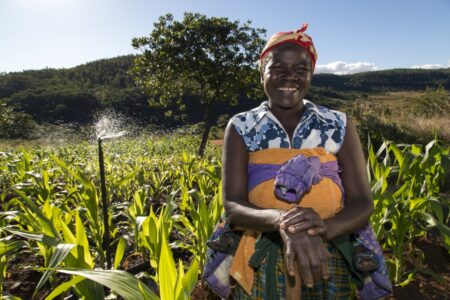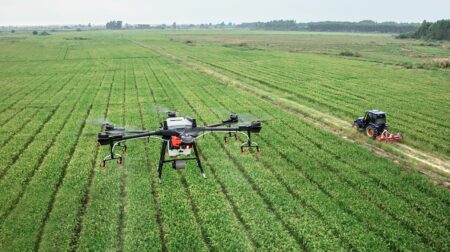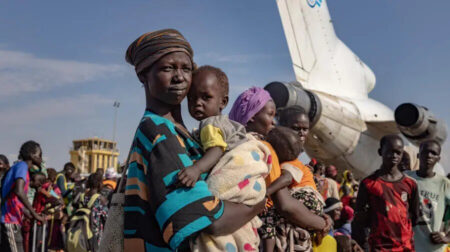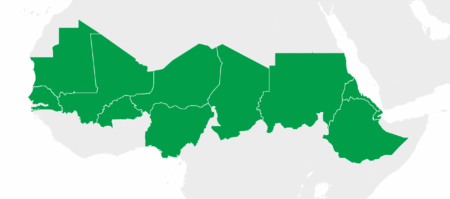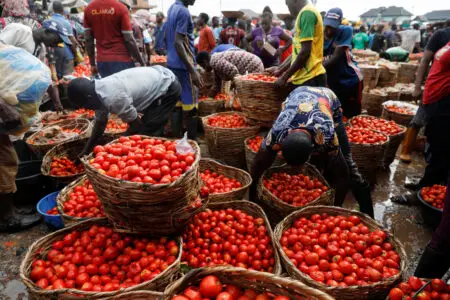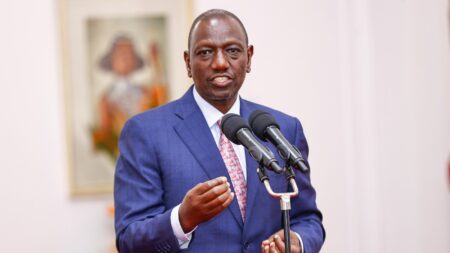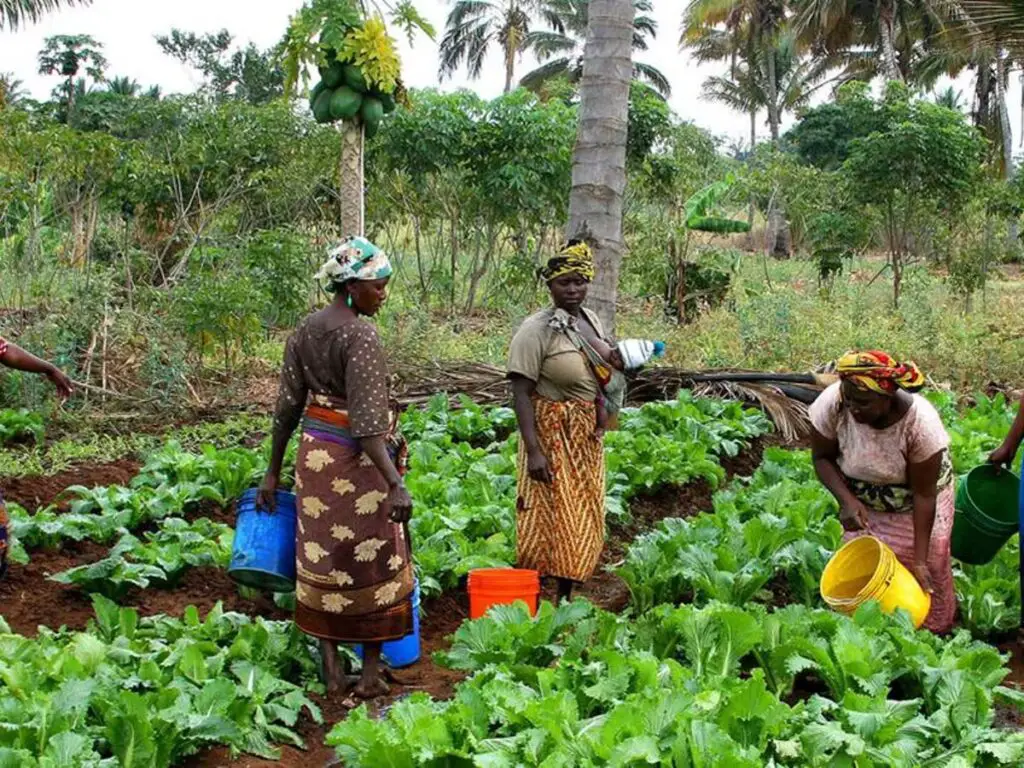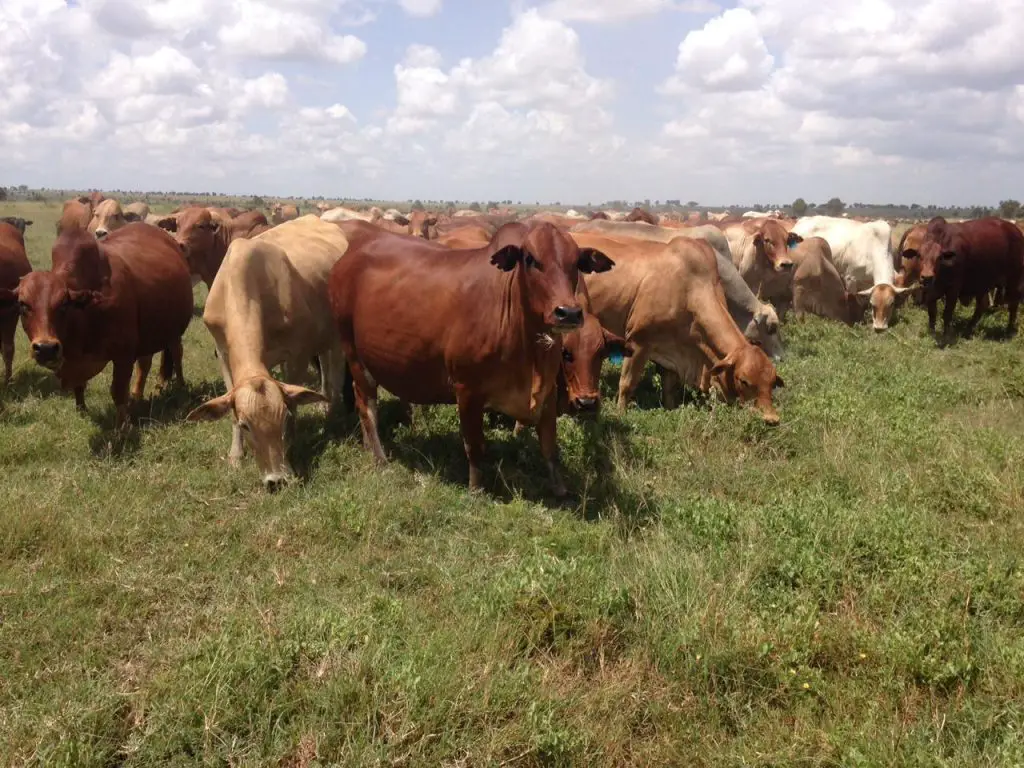- Africa’s new dawn: the rising role of digital and AI in agriculture
- Can Dangote Refinery Transform Africa Energy Ambition
- Gallup Survey: 80 per cent of Kenyan Workers Are Disengaged and Seek New Opportunities
- Madagascar Man Freed from 5KG Tumor After 15-Year Struggle
- How women in Africa are perceived and treated
- Sugar consumption in Kenya to Increase to 1.23 Million Tonnes
- Can Somalia and Turkey Oil deal Bring Change in Somaliland
- Remittances to Kenya dropped to $371.6 million in June, marking a six month low
Browsing: Agriculture
- Africa’s food and agriculture market could reach $1 trillion in 2030 from $280 billion in 2023, with over $60 billion spent on food imports yearly.
- Access to credit poses a significant barrier to private sector investment in Africa’s agriculture sector
- Food and Agriculture Organization (FAO) highlights that around 30 to 40 per cent of food produced in Africa is lost before it reaches consumers.
Africa is a sleeping giant, at least from the agricultural sector. The region’s food and agriculture market could reach $1 trillion from $280 billion in 2023, with over $60 billion spent on food imports yearly.
The numbers in the latter are self-explanatory agriculture in Africa is not only a staple economic activity for most of the population but the region at large.
However, the sector is faced with both promising leads of growth but, at the same time, hurdles, including lack of proper funding leading to …
- Kenya’s economic resurgence in 2024 proving a reality following a notable upturn in recent months, marked by positive indicators across sectors.
- According to CBK, leading indicators point to the continued strong performance of the Kenyan economy in the first quarter of 2024.
- According to the World Bank, Kenya’s economic growth is projected to be 5.2 per cent, boosted by increased investment in the private sector as the government reduces its activities in the domestic credit market.
A strong rebound
Kenya’s economic prospects are looking brighter, attributed to the interventions by the World Bank and the International Monetary Fund, which have played a massive role in easing volatility witnessed less than three months ago.
Major economic indicators in the country show that confidence is slowly creeping back after the government secured the International Monetary Fund’s facility to pay back the Eurobond.
The repayments had triggered volatility in financial markets, including the …
Africa’s agritech potential is immense. Agriculture can help solve various issues, including food security, poverty reduction, and economic transformation. However, technology is needed to revolutionise agriculture and solve farming and agricultural challenges.…
- Over a decade since gaining independence, South Sudan continues to be affected by fragility, economic stagnation, and instability.
- South Sudan’s economy is clouded by production bottlenecks in the oil sector, with production dwindling in the face of limited new investment.
- The susceptibility of South Sudan to climate change and natural calamities exacerbates the nation’s economic challenges, threatening the progress of growth and development initiatives.
The Republic of South Sudan emerged as the world’s newest sovereign state and the 54th country in Africa on July 9, 2011. However, the progress of development post-independence was significantly hampered by civil war outbreaks in 2013 and 2016, which also aggravated the humanitarian crisis.
Over a decade since gaining independence, South Sudan continues to be affected by fragility, economic stagnation, and instability. Pervasive poverty is further intensified by ongoing conflict, displacement, and external shocks.
Crisis facing the oil and energy sector
Oil production is …
- Agriculture is one of the leading causes of climate change.
- Without action, emissions from food systems will rise even further, with increasing food production.
- Climate-smart agriculture offers a holistic approach to end food security.
It may surprise many that agriculture and its activities are, in fact, one of the leading causes of climate change. Agriculture is reported to be responsible for some of the highest emissions of greenhouse gases, making the sector one of the main contributors to global warming.
It strikes the environment with a double-edged sword, emitting greenhouse gases on one hand and destroying forests and marine ecosystems on the other.
According to the World Bank, agriculture is the primary cause of deforestation, threatening pristine ecosystems such as the Amazon and the Congo Basin. With the global population exploding, there is an inevitable need to increase food production, which can only be achieved by expanding agricultural activities.
This …
- Nigeria’s inflation rate has remained high for the past 9 years, way before COVID-19 and the disruptions it imposed.
- Experts have argued that Nigeria’s inflation results from excess money supply in the economic system chasing too few goods.
- Nigeria’s inflation climbed to a new 18-year high in November, matching a record level last seen in 2005.
In 2021, the global economy experienced an inflation surge. This was the first time in many decades that inflation hit double digits in most developed and emerging economies. In the United States, inflation peaked at 9.1 per cent in July 2022, the highest in 40 years.
Such high levels of inflation were unusual and uncomfortable, and the Central Banks in the affected countries tackled it ruthlessly. The applied policy actions paid off and inflation has been moderating fast.
However, what obtains in Nigeria paints a starkly different image from what the rest of the …
- Since ascending to office in September 2022, President Ruto has remained relentless in his bid to boost Kenya’s agricultural productivity.
- Agriculture remains the bedrock of the country’s development and the key to creating equitable and sustainable growth for its citizens.
- President Ruto has focused on implementing policies and programs to enhance productivity, improve farmers’ incomes, and ensure food security.
Agriculture as a bedrock of Kenya’s economic prosperity
Kenya has made impressive economic strides in innovation and entrepreneurship, private sector enterprise, infrastructure, and human skills development. However, agriculture remains the bedrock of the country’s development and the key to creating equitable and sustainable growth for its citizens. The importance of agriculture has been highlighted in Kenya’s Vision 2030
Moreover, research has demonstrated that agriculture remains a major driver of economic prosperity for most African countries. In addition to driving economic growth, agriculture creates jobs for most rural communities and is essential …
- Women and youth in Kenya’s agricultural sector are set to benefit from new AfDB funding.
- Another $1.3 million has been set aside to support the youth and women entrepreneurs in Kenya’s agriculture value chains.
- The funding was provided by the European Union in partnership with the AfDB.
Kenya’s women and youth in agriculture are set to benefit from fresh financing after the African Development Bank (AfDB) approved an equity investment of $19.65 million in the Africa Guarantee Fund (AGF).
Another $1.3 million will support the youth and women entrepreneurs engaged in the country’s agricultural value chains. The funding, approved on June 6, 2023, was provided by the European Union (EU) under its partnership with the AfDB.
“The approval is another milestone in the implementation of the partnership with the EU, which also signals the importance given to the role of women and youth in the agricultural sector in Kenya,” the …
- Financing will create more jobs, and reduce national expenditure on the importation of milk and dairy products. It will also improve the nutritional status of Nigerians.
- The credit scheme also seeks to reduce protracted conflict between farmers and herders as well as drive investments in the industry.
- Ministry of Agriculture says plan will improve security and foster harmonious existence between farmers and herders.
Livestock farmers across Nigeria are set to benefit from a $10.8 million credit scheme that seeks to enhance their business value chains and attract more investors in the sector.
According to the Minister of Agriculture and Rural Development, Mohammad Mahmood Abubakar, the $10.8 million credit scheme targeting livestock farmers, will be run by the Bank of Agriculture.
Mr Abubakar said Nigeria is committed to reforming the livestock sector with notable programmes such as the National Livestock Transformation Plan, and Livestock Productivity Resilience and Support Plan, among others.…
- Power tools maker STIHL East Africa has lined up $1 million every year for investment in local equipment manufacturing.
- The company has partnered with Proteq Automation Ltd and Tippers and Trailer Ltd, who have been tasked to make accessories for all STIHL East Africa products in the region.
- Company Managing Director Francois Marais says the move will see the firm lower accessory costs, create jobs and inject $1 million every year into the Kenyan market.
Power tools maker STIHL East Africa is set to invest $1 million every year in initiatives that enhance the manufacturing of various equipment part as the company seeks to ensure a wider range of its machines are made locally, opening the doors for new jobs.
The company has already partnered with Kenyan firms including Proteq Automation Ltd as well as Tippers and Trailer Limited, which have been tasked to start making accessories for the entire …





